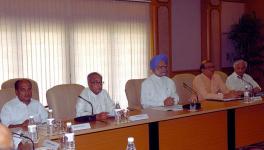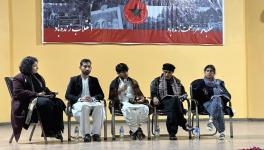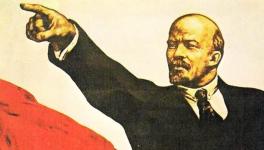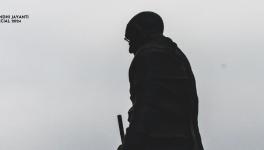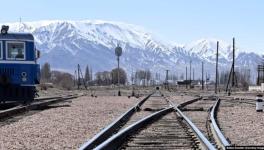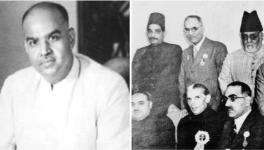How Nehru Prevented Gurdaspur, Ferozepur From Becoming Part of Pakistan
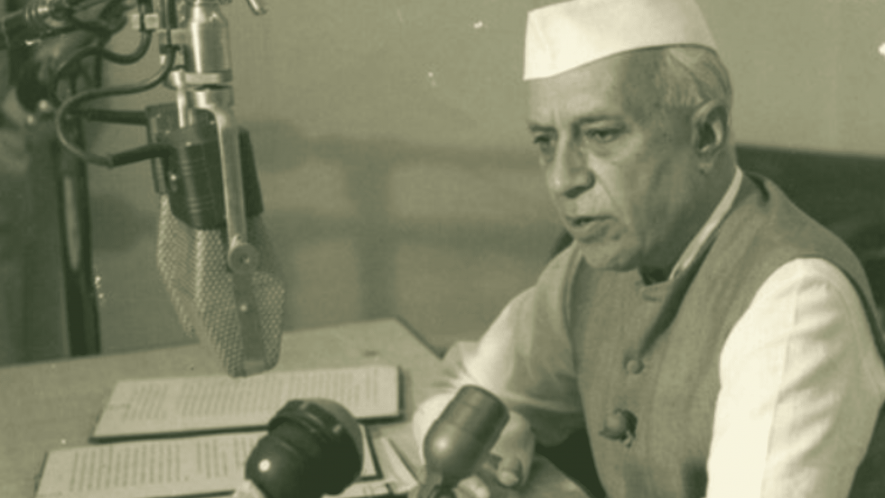
Jawaharlal Nehru (File Image Credit: PTI)
Lord Louis Mountbatten was sworn in as the last Viceroy of India on March 24, 1947. A month earlier, the British government had finally decided to leave the country. On February 18, Prime Minister Clement Attlee delivered the historic announcement in the House of Commons: “His Majesty's Government wishes to make it clear that it is their definite intention to take the necessary steps to effect the transfer of power into responsible Indian hands by a date not later than June 1948.”
But the young and restless Admiral, who had his way in having many of his conditions met by Attlee before accepting the Viceroyalty, including drafting the above statement, was not prepared to wait that long.
Within 10 days of his arrival, after confronting outbursts of violence in Calcutta (now Kolkata) and Bombay (Mumbai), the new Viceroy wrote in his first report to the man who had sent him to India:
“The only conclusion I have been able to come to is that unless I act quickly, I will find the beginnings of a civil war on my hands.”
At his first, and also the last, press conference held later, the overconfident Viceroy announced before 300 journalists that he had decided August 15 as the date India would get its independence.
Mountbatten's spontaneous decision to announce the date of Indian independence without consulting anyone, British authorities or Indian leaders, dropped a bombshell in both India and England.
The question of the country's division was solved, earlier, on June 3, 1947, when the “four key leaders formally announced their agreement to divide the subcontinent into two separate, sovereign nations.” With only 73 days left before August 15, Mountbatten had to proceed at a frantic pace to divide India into two nations.
As Larry Collins and Dominique Lapierre describe in their magnum opus, Freedom at Midnight:
“Never before had anything even remotely like it had been attempted. Nowhere were there any guidelines, any precedents, any revealing insights from the past to order what was going to be the biggest, the most complex divorce action in history, the breakup of a family of 400 million human beings along with the assets and household property they had acquired in centuries of living together on the same piece of earth.”
The burden of carrying out the most complex task involved in India's partition was to fall upon one man living in London: Sir Cyril Radcliffe, widely acknowledged 'as the most brilliant barrister in England.' But despite his immense knowledge of law and an array of subjects, Radcliffe knew nothing about India. In fact, he had never visited the sub-continent and was not aware of its diverse culture, religions and languages. But this lack of knowledge of India became, paradoxically, his qualification for becoming an impartial judge between the ‘soon to be born’ sovereign nations.
Radcliffe was made chairman of the Boundary Commission to demarcate the boundary lines dividing the provinces of Punjab and Bengal. Soon after his arrival in India, he was briefed by the Viceroy on how to go about his task: he was to draw his boundary line “ascertaining the contiguous majority areas of Muslims and non -Muslims.”
In doing so, Radcliffe had to take other factors into account that were not spelt out. But he said he would try to ensure that, while he was drawing the line, communities were not severed from the lands they tilled, factories from their fright depots or power plants from their grids. He would also try and draw the ‘Radcliffe line’ along natural boundaries, like rivers, canals and hills. This was an uphill task, which was bound to upset, depending on the land, one side or the other and create controversies even after acceptance, willing or unwilling, of the award by both the parties.
But, political and cultural considerations outweighed economic considerations. For instance, Calcutta (now Kolkata) was awarded to India due to its Hindu majority even though Mohd Ali Jinnah wanted it in East Pakistan for economic reasons. Similarly, Amritsar, with its Golden Temple, had to be awarded to India due to the emotional links the Sikh population had with their most sacred shrine.
The most controversial decision by Radcliffe was in the case of Gurdaspur and Ferozepur, both Muslim majority districts and, by the yardstick of the ‘Radcliffe line’, would have gone to Pakistan. But Jawaharlal Nehru, India's Prime Minster designate, was determined to ensure that both the slight Muslim majority districts were retained in India.
Gurdaspur was important, as it provided the only road link to Kashmir, which would later accede to India. Ferozepur was vital, as it housed the headworks of the irrigation system of not only SW Punjab but also Bikaner.
Nehru had the foresight to influence the fate of Gurdaspur before the Mountbatten Plan was approved by British Parliament. Nehru and Mountbatten met on May 11, 1947, in Shimla for talks called by the latter. It was in this meeting that Nehru convinced Mountbatten that Jinnah would not get, as he was aggressively demanding, the whole of Punjab and Bengal, but only truncated portions of these two Muslim majority provinces.
Quoting from official papers, with his comments, journalist-turned-politician MJ Akbar writes in Nehru -The Making of India:
“Mountbatten then met Nehru alone and agreed that Jinnah would get his Pakistan with Punjab and Bengal truncated. But power in the rest of the country would be handed to only one central successor government. At 2.15 PM there was a formal meeting (where, when the details were being discussed, Nehru introduced the problem of Gurdaspur, with its evenly divided population, and virtually ensured that this critical land-link with Kashmir remained in India).”
If Nehru prevailed upon Mountbatten to prevent Gurdaspur from being included in India three months before Independence, the case of Ferozepur was different.
The control and management of the Ferozepur canal headworks was vital to the economic life of Bikaner, and since Bikaner had acceded to India, the Ferozepur headworks should be included in India. But the Bahawalpur State had submitted a counter claim, that since it would be part of Pakistan, the canal headworks should be located in West Punjab.
The Maharaja of Bikaner sent his emissary Dr Kanwar Sain, who had given him the information that Ferozepur and Zira tehsils were being awarded to Pakistan, to meet Mountbatten and Nehru. Sain was unable to meet Mountbatten but he met Nehru and some other Congress leaders, and told them that the Ferozepur headworks were so important to Bikaner that if these went to West Punjab, Bikaner would have to join Pakistan.
Aziz Beg, a biographer of the Founder of Pakistan writes in his book, Jinnah and His Times:
“Nehru rushed to Mountbatten and explained the gravity of the situation and pressed him to change the award and Mountbatten was only too willing to oblige the Indian leaders.” According to the author, in the case of both Gurdaspur and Ferozepur, the decision to award these two districts to India was not of Radcliffe, but that of Mountbatten.
No wonder MJ Akbar in his biography of Nehru, which he wrote as a centennial tribute to the ‘Architect of Modern India’ in 1989, has rightly written: “It sounds one of those very dramatic things to say which immediately arouse suspicion, but the record proves beyond doubt that Jawaharlal Nehru, with the help of his friend, Krishna Menon, performed a unique and immeasurable service to the country.”
There cannot be a greater irony that today Akbar finds himself on the wrong side of the political divide (he is with the ruling dispensation). Isn’t he uncomfortable in the company of those who distort history at every opportunity?
The writer, an ex-Army officer, is a columnist and author of ‘Freedom Struggle and Beyond’. The views are personal.
Get the latest reports & analysis with people's perspective on Protests, movements & deep analytical videos, discussions of the current affairs in your Telegram app. Subscribe to NewsClick's Telegram channel & get Real-Time updates on stories, as they get published on our website.









